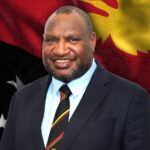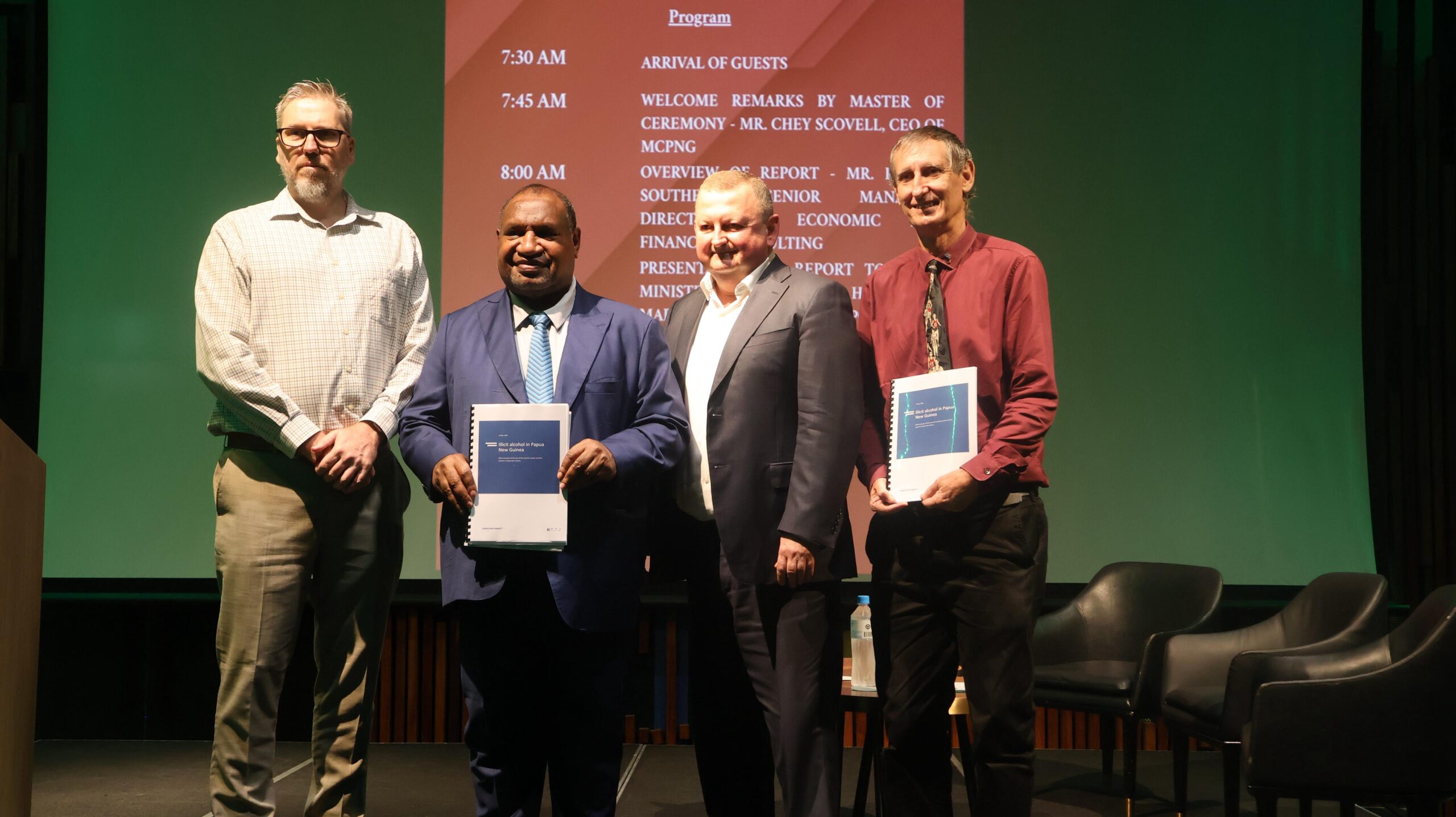Prime Minister Hon. James Marape has reaffirmed his government’s commitment to reform Papua New Guinea’s alcohol and tobacco sector, crack down on illicit trade, and promote safe and legal consumption — while supporting legitimate business — during the official launch of the FTI Consulting Report on Illicit Alcohol in Papua New Guinea.
Speaking at the event, Prime Minister Marape acknowledged the work of FTI Consulting, the Manufacturers Council of PNG, Port Moresby Chamber of Commerce and Industry, and all stakeholders who contributed to the report, describing it as a timely and necessary intervention to address the harmful effects of black-market alcohol in the country.
“Thank you for always being around us and providing informed statistics, rationales, and findings,” the Prime Minister said. “This helps us ensure that our policies are relevant and effective.”
The report — the first of its kind in Papua New Guinea — reveals that 71% of all alcohol consumed in urban and peri-urban areas in 2024 was illicit, equivalent to 7.45 million litres of pure alcohol and costing the nation an estimated K2.59 billion in lost tax revenue. The findings highlight the alarming affordability gap between legal and illicit products, with a minimum wage worker needing to labour over three hours for one licensed standard drink— but only 12 minutes for a dangerous illicit brew.
Driven by these stark price signals and rising excise rates on legal alcohol, the study concludes that Papua New Guinea has effectively “taxed itself into a public health emergency.”
Outdated Colonial-Era Laws Must Be Reformed
Prime Minister Marape called on all relevant government departments — including Treasury, Commerce and Industry, Police, and the State Solicitor’s Office — to urgently review and modernise alcohol-related legislation, some of which date back to the 1950s.
“The Excise Act 1956, Distillation Act 1955 — these are legacy laws inherited at Independence in 1975. In 2025, we must update them to reflect our modern reality,” he said.
The Prime Minister emphasised that a clear legal and regulatory framework is essential to removing black market actors, protecting consumers, and ensuring fair competition for law- abiding businesses.
Strengthening Enforcement, Supporting Legal Trade
Prime Minister Marape praised the efforts of the Customs Service and Police in reducing illegal tobacco imports over the past six years, noting the direct correlation with increased revenue from legal sales.
“The reduction of illegal cigarettes since we came into office has been monumental. Strong enforcement works — and the same approach is now needed to tackle illicit alcohol.”
He recognised the contribution of legal producers, including British American Tobacco (BAT), and reaffirmed his commitment to supporting formal businesses through clear, fair, and enforceable policy.
Safe Consumption and Public Health
While expressing his personal choice to live free from alcohol and tobacco, Prime Minister Marape said he recognises that legal consumption exists and must be responsibly managed.
“Alcohol is not good — but if people choose to drink, they must do so safely and legally,” he said. “Illicit brews are toxic and unsafe. We must protect our people.”
He called for alcohol to be removed from informal and unregulated street sale and placed under properly licensed outlets with strict safety standards.
“Alcohol must not be sold as an everyday item on our streets. It must be properly regulated and consumed in appropriate settings.”
Toward a Modern Economy with Lower Taxes and Higher Compliance
Prime Minister Marape said his government is working towards an economy that supports legal business, lowers taxes, and enforces compliance.
“When we reach our K200 billion economic target — hopefully by 2029 or 2030 — I want us to be in a position to reduce tariffs and taxes, while stepping up enforcement and penalties on illegal operators.”
He added that the government is targeting a surplus budget by 2027 and will then look at further tax reforms to open up the economy and reduce reliance on high tariffs.
The FTI report estimates that PNG’s GDP suffered a 0.7% annual loss due to illicit alcohol trade in 2024 alone, and that, if unaddressed, this could grow to an 8% long-term drag on national growth, reducing household income, public service capacity, and formal sector jobs.
Call to Action and Government Assurance
The Prime Minister committed to reviewing the report’s recommendations and working closely with the industry to enact change.
“I welcome this report and look forward to the associated recommendations. We will work with you — the industry, the chamber, and the relevant agencies — to ensure legal, safe, and properly regulated alcohol and tobacco markets.”
“Let us protect lives, support legal businesses, and clean up this sector for the benefit of all Papua New Guineans.”






